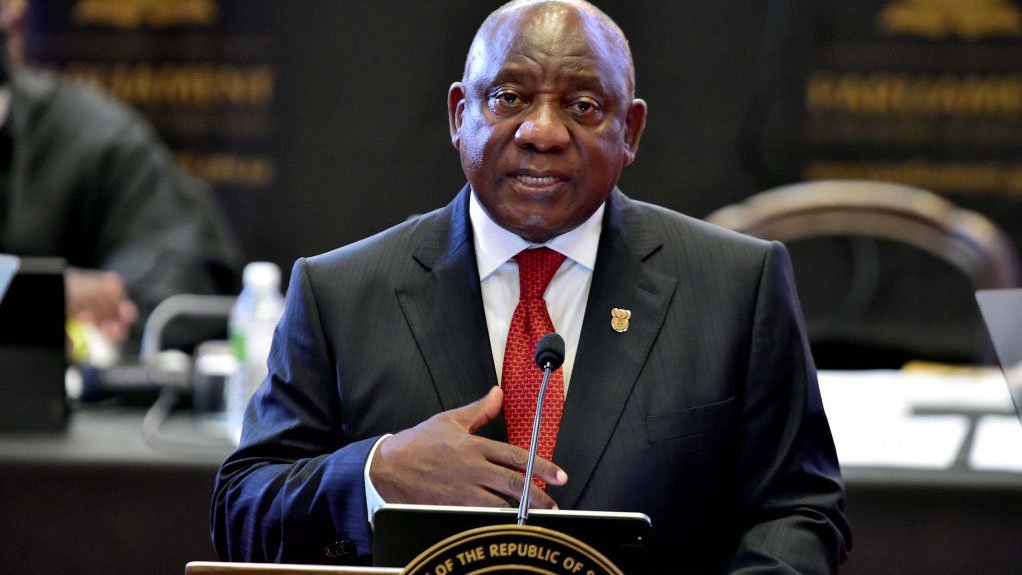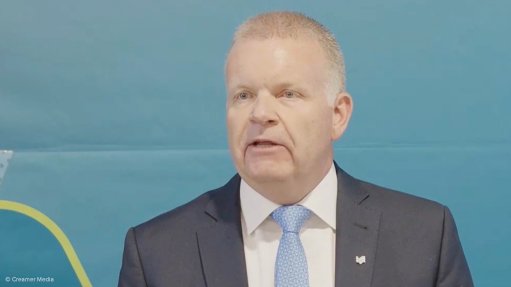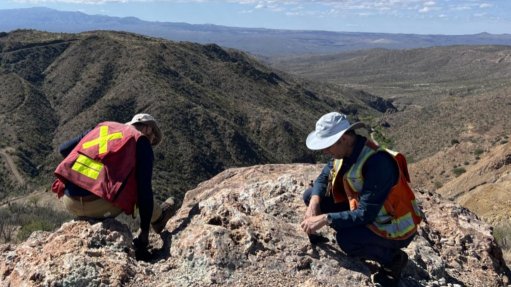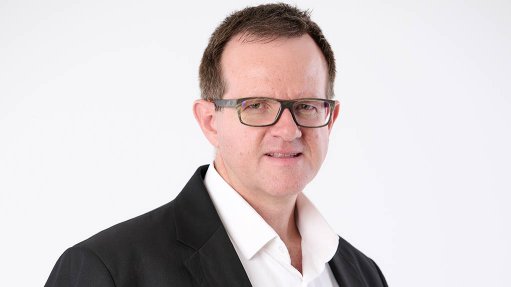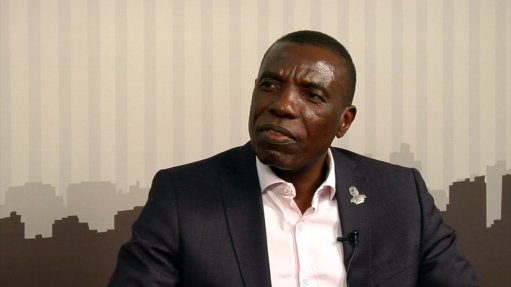Red tape delaying R90bn investment in ready-to-go projects – Minerals Council
JOHANNESBURG (miningweekly.com) – Red tape is delaying investment worth R90-billion in ready-to-go mining-related projects, at a time when the South African economy is in desperate need of such projects proceeding, to create jobs and to stimulate economic growth.
Projects worth R30-billion would be able to proceed if the 4 000-plus mining and prospecting rights backlog could be eliminated, and R60-billion worth of renewable energy projects could release 3 900 MW into the energy space if inhibiting bureaucracy were removed, Minerals Council South Africa has revealed in response to President Cyril Ramaphosa’s State of the Nation address (SoNA).
Against the background of the President appointing stalwart Sipho Nkosi to remove red tape, Minerals Council CEO Roger Baxter stated in a release to Mining Weekly: “We need to do things completely differently to get economic growth back to 5% per annum. The government should be the chief enabler and the private sector the chief doer," said Baxter, who cited the mining sector’s full and partial Covid-19 vaccination of 74% of its 450 000 employees with the assistance of the Department of Health as an example of the private sector’s ability to assist government.
The SoNA has opened the door for partnerships with the State to reverse the economic slump the government cannot address on its own.
Such partnerships could also extend to companies that mine iron-ore, coal, chrome, and manganese. These companies have experienced increasingly severe disruptions to their export logistics because of the inability of Transnet to provide a reliable rail and port service, owing to rampant crime on its railways and unavailability of locomotives. As a result, South Africa had lost at least R35-billion in potential exports in 2021, the council estimated.
Moreover, problems at Richards Bay had resulted in chrome exporters sending their products by road to Mozambique’s Maputo harbour. Since 2019, R2.9-billion worth of South African chrome has been exported through Maputo, which meant less revenue for Richards Bay and its owner Transnet Port Terminals. Ferrochrome and coal exports were also increasingly being sent through Maputo because of the inefficiencies of Transnet rail and ports.
The Minerals Council described Ramaphosa’s comments about bringing private investors into the Durban and Ngqura container terminals and private train operators on the container railway line between Durban and Johannesburg as a step in the right direction, “but for the mining industry the railways and ports servicing companies exporting bulk minerals need urgent attention and private sector participation to deliver efficiencies and productivity”.
On the energy front, the renewable energy project plans of Minerals Council member companies can substantially contribute to bridging the large electricity supply deficit in the country, diversify the country’s supply, reduce the sector’s carbon footprint, and stabilise costs.
“Bureaucratic and red tape delays have meant these projects cannot assist in easing South Africa’s energy deficit. An unbundling of Eskom by end-2022 is a key structural reform, while amendments to the Energy Regulation Act to create a competitive electricity generation market and the establishment of an independent state-owned electricity transmission company underpins that reform,” the council stated.
CRIME A PRESSING PROBLEM
“One of the most pressing problems the government must address immediately is crime, which has destroyed the country’s rail infrastructure, damaged investor confidence and has affected lives and livelihoods across the country,” the council stated.
“President Ramaphosa’s commitment to expedite legal action against those named in the Zondo State Capture reports, and the inclusion of the private sector to assist in these actions, will send a clear message to all South Africans about the government’s bona fides in ending corruption if guilty high-level politicians and business people are prosecuted and jailed.
“President Ramaphosa’s commitment of deploying specialist units to tackle criminal gangs – known as procurement or construction mafia – disrupting mines and other areas of the economy needs to bear fruit, while his promise of leadership changes of various security agencies to improve the fight against crime is long overdue.
“We will apply our resources, our capability, to working in partnership with the government on an inclusive growth strategy, and on initiatives like the development of a National Security Strategy to combat crime. Crime is a pervasive issue that affects everyone, not just the mining sector. If we don’t deal with crime, particularly the criminal syndicates and construction/procurement mafia, it will continue to have material impacts on long-term investment sentiment,” said Baxter.
The ability to expand the South African mining industry in strategic minerals that are crucial for clean energy, such as platinum, vanadium, cobalt, copper, manganese and lithium, was noted by President Ramaphosa during the SoNA, in which he highlighted the country’s unique opportunity in green hydrogen, given our world-class solar and wind resources and local technology and expertise, and abundance of platinum-group metals.
CATALYTIC PROJECTS
President Ramaphosa stated in his SoNA address that several catalytic projects to the value of R21-billion were expected to start construction this year. Of this, R2.6-billion would be contributed by government and the balance from the private sector and developmental finance institutions.
The president said that government would make an initial investment of R1.8-billion in bulk infrastructure, which would unlock seven private sector projects to the value of R133-billion.
Nearly four years ago, South Africa set itself a target of mobilising R1.2-trillion in new investment over five years. By the time of the third South Africa Investment Conference in November 2020, the country had reached R776-billion in investment commitments.
Next month, on March 24, South Africa is scheduled to hold its fourth South Africa Investment Conference in Johannesburg.
Positive for Africa as a whole is the resolution of the Africa Union to allow trading to begin under the African Continental Free Trade Area agreement.
“South African companies are poised to play a key role in taking up the opportunities that this presents for preferential access to other African markets,” President Ramaphosa said during the SoNA.
“The free trade agreement is about Africa taking charge of its destiny and growing its economies faster,” the President added.
HEMP AND CANNABIS
On the agricultural resources front, the large tracts of land controlled by South Africa’s mining industry could be considered for the growing of hemp and cannabis, which the President described as having the potential to create more than 130 000 new jobs.
Good news is that regulatory processes are being established to allow hemp and cannabis to thrive, as is the case in Lesotho.
FROM THE DESK OF THE PRESIDENT
In his 'From the Desk of the President' communication on February 14, Ramaphosa expanded on the debate between the roles of the State and business and the need for both to play roles to drive growth and employment.
“We need a capable developmental state and a dynamic and agile private sector. We need them to work together and complement each other,” he stated.
Interestingly, 30 years ago, in 1992, the African National Congress adopted a document titled ‘Ready to Govern’. The document set out policy guidelines for a democratic South Africa and has, over nearly three decades, influenced the policy direction of successive democratic administrations.
The ‘Ready to Govern’ document envisaged a democratic State with ultimate responsibility for ‘coordinating, planning and guiding the development of the economy towards a sustainable growth pattern’ in cooperation with the trade union movement, business and other organs of society.
It spoke of the need for economic policy that democratises the economy and creates productive employment opportunities at a living wage for all South Africans.
The document further envisages ‘a dynamic private sector, employing the skills and acumen of all South Africans…and of business activities which contribute significantly to job creation, being actively encouraged.’
In last week’s SoNA, Ramaphosa outlined how government, business and labour should work together, each using their unique capabilities, to create jobs.
One of the most important drivers of growth and employment was, he said, State-owned enterprises (SOEs), which generate electricity, manage the ports, build the roads and supply the water that the economy needs to function.
He noted that since the advent of democracy, these SOEs had significantly expanded access to basic services for the poor. That is why a critical part of the government’s programme was to strengthen SOEs, restoring them to financial health, improving their operational performance and enabling them to play a more prominent and beneficial role in the economy.
“True to the role envisaged in ‘Ready to Govern’, the state directs both growth and transformation through levers like competition policy, broad-based black economic empowerment provisions and employment equity laws, and by linking the award of various licences to universal service and empowerment obligations,” Ramaphosa stated.
Government was, he said, also directly involved in employment creation beyond those people employed in the public service. The Expanded Public Works Programme, which has been in existence since 2003, had provided work opportunities to millions of people.
More recently, in response to the devastating economic impact of the Covid-19 pandemic, this government had overseen the most significant expansion of public employment in our country’s history.
The Presidential Employment Stimulus had supported more than 850 000 opportunities in just 16 months. In addition to expanding public employment, support to unemployed young people to prepare them for work had been provided, making them more employable and connecting them to opportunities.
“There are many other ways in which government is contributing directly to job creation, including through large-scale investments in infrastructure, the establishment of special economic zones and through support to labour-intensive growth industries.
“A special focus this year is on small, medium and micro businesses, on cooperatives and the informal sector. Through the redesign of the loan guarantee scheme that we introduced in the early months of the Covid-19 pandemic, we are making ‘bounce back’ finance more accessible for small businesses. We are expanding the employment tax incentive and looking at various other regulatory changes to make it easier for small businesses to employ more people.
“As I indicated in the State of the Nation Address, these are among the measures we are taking as government 'to create the conditions that will enable the private sector – both big and small – to emerge, to grow, to access new markets, to create new products, and to hire more employees'.
“The private sector employs some three quarters of South Africa’s workers and accounts for over two-thirds of investment and research and development expenditure. Alongside a capable and developmental state, our country therefore needs a thriving private sector that is investing in productive capacity.
“As private sector employment expands, more livelihoods are supported and sustained. Goods and services are delivered at a greater scale and the democratic state is able to collect more revenue for social development,” Ramaphosa wrote.
The ‘Ready to Govern’ document says that the role of the state “should be adjusted to the needs of the national economy in a flexible way”, whether it is increasing the public sector in strategic areas or reducing it in others.
Such a mixed economy, it said, would foster a new and constructive relationship between the people, the state, the trade union movement, the private sector and the markets.
“It is this relationship that we are now working to deepen and improve, to forge a new consensus for growth and employment. After a decade of low growth and rising unemployment, this is the way to revive our economy – creating a dynamic, competitive, fast-growing economy that is able to compete with the best in the world.
"We will not achieve such an economy without both a strong and capable developmental state and an inclusive, fast-growing private sector. We should not be asked to choose one or the other. We need both,” Ramaphosa said.
Article Enquiry
Email Article
Save Article
Feedback
To advertise email advertising@creamermedia.co.za or click here
Announcements
What's On
Subscribe to improve your user experience...
Option 1 (equivalent of R125 a month):
Receive a weekly copy of Creamer Media's Engineering News & Mining Weekly magazine
(print copy for those in South Africa and e-magazine for those outside of South Africa)
Receive daily email newsletters
Access to full search results
Access archive of magazine back copies
Access to Projects in Progress
Access to ONE Research Report of your choice in PDF format
Option 2 (equivalent of R375 a month):
All benefits from Option 1
PLUS
Access to Creamer Media's Research Channel Africa for ALL Research Reports, in PDF format, on various industrial and mining sectors
including Electricity; Water; Energy Transition; Hydrogen; Roads, Rail and Ports; Coal; Gold; Platinum; Battery Metals; etc.
Already a subscriber?
Forgotten your password?
Receive weekly copy of Creamer Media's Engineering News & Mining Weekly magazine (print copy for those in South Africa and e-magazine for those outside of South Africa)
➕
Recieve daily email newsletters
➕
Access to full search results
➕
Access archive of magazine back copies
➕
Access to Projects in Progress
➕
Access to ONE Research Report of your choice in PDF format
RESEARCH CHANNEL AFRICA
R4500 (equivalent of R375 a month)
SUBSCRIBEAll benefits from Option 1
➕
Access to Creamer Media's Research Channel Africa for ALL Research Reports on various industrial and mining sectors, in PDF format, including on:
Electricity
➕
Water
➕
Energy Transition
➕
Hydrogen
➕
Roads, Rail and Ports
➕
Coal
➕
Gold
➕
Platinum
➕
Battery Metals
➕
etc.
Receive all benefits from Option 1 or Option 2 delivered to numerous people at your company
➕
Multiple User names and Passwords for simultaneous log-ins
➕
Intranet integration access to all in your organisation



